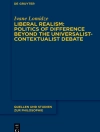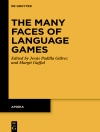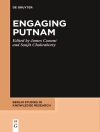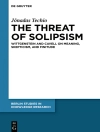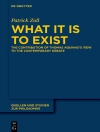The unmatched technological achievements in artificial intelligence (AI), robotics, computer science, and related fields over the last few decades can be considered a success story. The technological sophistication has been so groundbreaking in various types of applications that many experts believe that we will see, at some point or another, the emergence of general AI (AGI) and, eventually, superintelligence. This book examines the impact of AI on human rights by focusing on potential risks and human rights legislation and proposes creating a Universal Convention for the Rights of AI Systems (AI Convention).
Tabella dei contenuti
1 General Introduction.- 1.1 General Line of Argumentation.- 1.2 The Caveat.- 1.3 Extreme Scepticism and Robot Rights.- 1.3.1 A Plea for Human Exceptionalism.- 1.3.2 The Mindless Morality View.- 1.3.3 Open-mindedness.- References.- 2 What Is Artificial Intelligence?.- 2.1 Introduction.- 2.2 Defining Artificial Intelligence.- 2.3 Artificial Intelligence and Ethics.- 2.3.1 Three Developmental Periods.- 2.3.2 The Ethics of Artificial Intelligence.- 2.4 Weak and Strong Artificial Intelligence.- 2.5 Superintelligence.- 2.6 Conclusions.- References.- 3 What Are Human Rights?.- 3.1 Introduction.- 3.2 What Are Human Rights?.- 3.2.1 The Concept of Human Rights.- 3.2.2 The Main Features of Human Rights.- 3.2.3 Different Types of Human Rights—A Classification.- 3.3 Moral and Legal Human Rights.- 3.4 Human Rights and Personhood.- 3.4.1 The Human DNA Argument.- 3.4.2 The Human Dignity Argument.- 3.5 Conclusions.- References.- 4 The Impact of Artificial Intelligence on Human Rights.- 4.1 Introduction.- 4.2 Artificial Intelligence and Human Rights—An Overview.- 4.3 Universal Declaration of Human Rights—Abridged Version.- 4.4 Zones of Conflict I—Machines Violate Human Rights.- 4.4.1 Table.- 4.4.2 Comments.- 4.4.3 Table.- 4.4.4 Comments.- 4.4.5 Table.- 4.4.6 Comments.- 4.5 Zones of Conflict II—Humans Violate “Machine Rights”.- 4.5.1 Table.- 4.5.2 Comments.- 4.6 Conclusions.- References.- 5 Moving Towards a “Universal Convention for the Rights of AI Systems”.- 5.1 Introduction.- 5.2 The Significance of Moral Status.- 5.3 Machine Rights as Fundamental Rights.- 5.4 The Idea of an AI Convention.- 5.5 The Problem of Design.- 5.6 Conclusions.- References.- 6 Objections.- 6.1 Introduction.- 6.2 The Dark Side of Superintelligence.- 6.3 Human Rights Are for Humans and Not Machines.- 6.4 The Argument from Artificial Servitude.- 6.5 Conclusions.- References.- 7 General Conclusions.
Circa l’autore
John-Stewart Gordon, Ph D in Philosophy, serves as an adjunct full professor at LSMU and has held various academic roles. He’s an associate editor at AI & Society, serves on multiple editorial boards, and is the general editor of Brill’s Philosophy and Human Rights series. With over 90 publications, John is a prolific contributor to practical philosophy.




